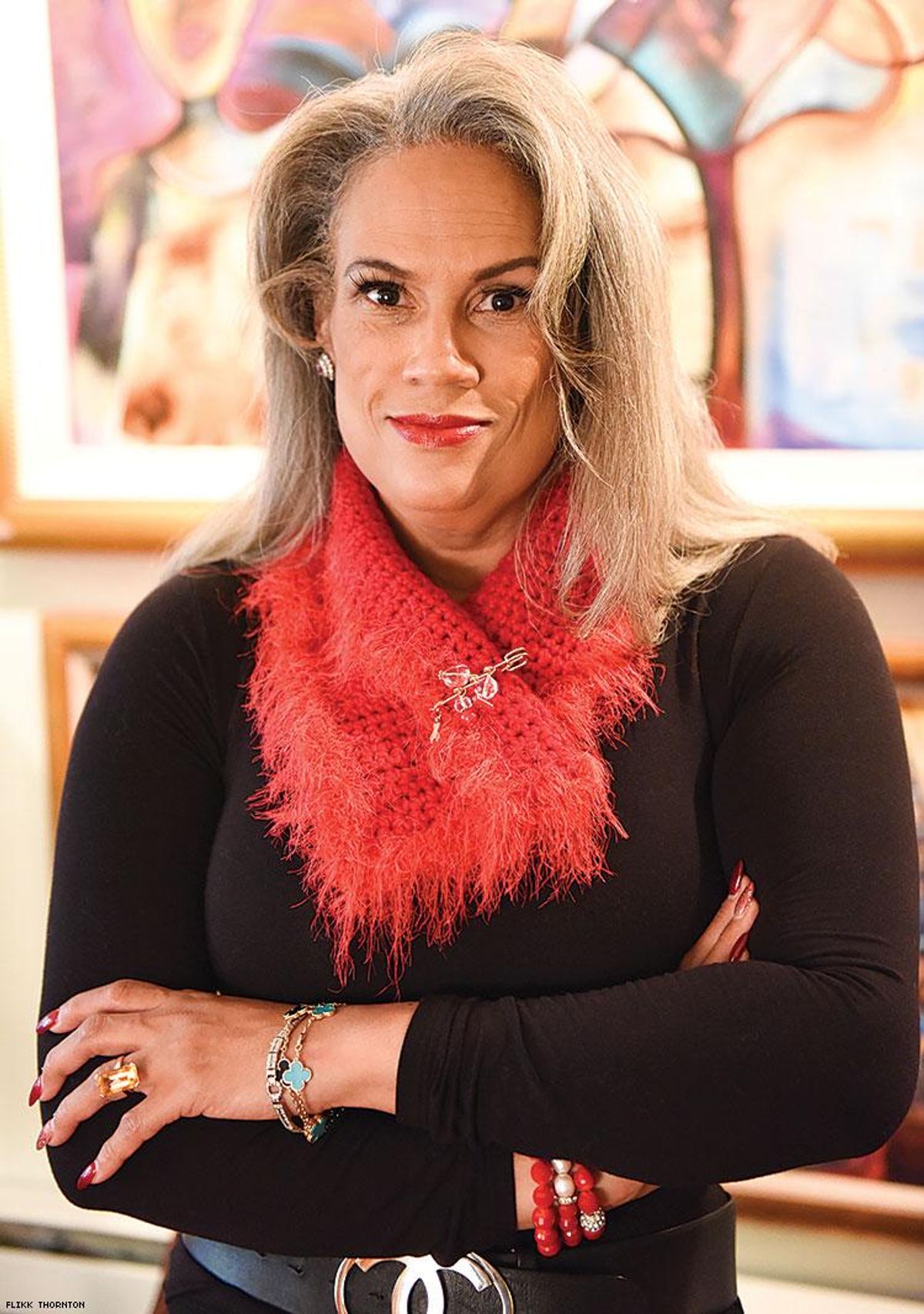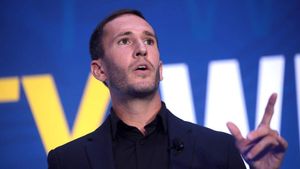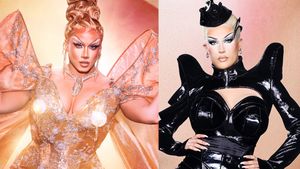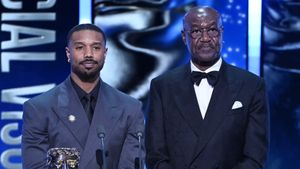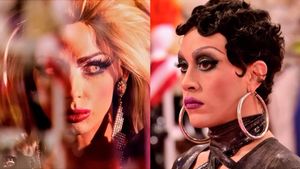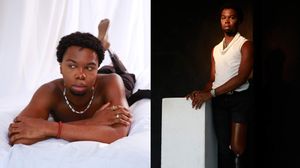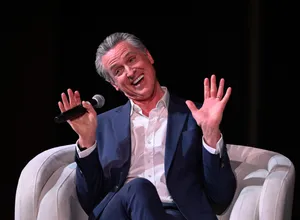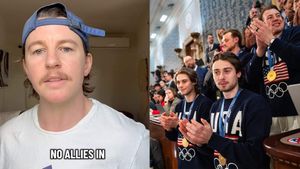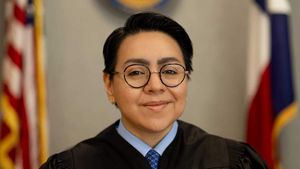Famous in the 1990s as “that Black woman with AIDS,” Rae Lewis-Thornton changed the national conversation around HIV when she came out on a 1994 cover of Essence magazine. The headline accompanying her photo declared, “I’m young, I’m educated, I’m drug-free, and I’m dying of AIDS.” One of the first African-American women to be open about her status, Lewis-Thornton became a new face of AIDS, one that proved Black women could get HIV even if they didn’t use drugs or have one-night-stands, had graduated cum laude from Northeastern Illinois University, and had worked on numerous high profile political campaigns (Senator Carol Mosley Braun in 1992, Michael Dukakis presidential campaign in 1988 , and both of Jesse Jackson’s 1980s era presidential bids).
For many Black women, Lewis-Thornton’s story was — and continues to be — a shocking revelation.
After being on the cover of Essence, Lewis-Thornton says she, “became this quasi kind of celebrity with HIV.” Nightline followed her for six months off and on, filming a special report, “Rae’s Story.” In Chicago, she anchored a series of news reports for CBS on HIV that won her an Emmy in 1995.
“I was always in the media,” she recalls now. “It was an interesting dichotomy actually, because at one level here I was, an attractive woman, and people were embracing me because my story resonated, especially with Black women. People liked me when they didn’t like their family members. A woman came to me one day and said, ‘You know, it occurred to me that I know more about your life than I know about my brother’s with AIDS.’”
Yet, at the same time, there was a backlash to the way her story resonated. “If I am as normal as they are, then they’re at risk too,” she explains. “They think, Oh, my God. This woman is me. This means I can get HIV. That’s when the stereotypical types of questions begin to emerge like, ‘How many men did you have sex with?’”
Although Lewis-Thornton often says, “No question is too personal,” she avoids providing a specific number. “All it takes is one,” she says.
In all other aspects, the activist is transparent: she’s spoken openly about medication side effects like diarrhea and lipodystrophy. She’s revealed that she had liposuction to remove fatty deposits under her chin. (“I got push back from that,” she says. “But it opened a door for other people in the clinic to get this same procedure done: for free.”) She talks about sex, dating, and disclosure; she talks about battles with depression, menopause, and aging with HIV. She talks about being a survivor of childhood sexual abuse as “a poor little Black girl born to heroin addicts.”
She believes in being open and honest and isn’t afraid to throw in a few F-bombs for emphasis.
“I push back in my candor and my honesty in a way that it has [gotten] me a lot of critics,” Lewis-Thornton admits. “Not only in the issue of respectability, but it’s cost me even within the HIV community.”
Still, she says, “I fundamentally believe that you cannot save lives with half-truths and misinformation. We set people up for failure when we aren’t honest about what this means. HIV is an exhausting disease to live with. It’s incredibly exhausting. The drug companies don’t want us to talk about that. It’s like, ‘Oh, there she goes again!’ [But] you can’t help people be better if we don’t acknowledge the issues … if we skate over them, if we ignore them, if we say, ‘Oh, it’s just a pill a day.’”
Lewis-Thornton says that in many ways she’s “an unpopular AIDS activist. I don’t get pharmaceutical money. I don’t get invited to the big AIDS conferences to speak.”
She was invited to a recent Black AIDS Institute roundtable involving Chicago faith leaders and Ambassador-at-large Dr. Deborah Birx, the U.S. Global AIDS Coordinator who oversees the implementation of the President’s Emergency Plan for AIDS Relief (PEPFAR).

Lewis-Thornton isn’t sure it went well. “I say things that aren’t popular. I say things that make me come across looking as anti something that I’m not.” In this case, she acknowledges, “You say something like that at a meeting and everybody’s looking at you like you fucking, like you’re antigay, you hate all gay men.”
Actually, Lewis-Thornton — who says her best friend is a gay man — has a long track record of being LGBT friendly. Among her fans is Tracy Baim, the publisher of Chicago’s LGBTQ paper, Windy City Times, who says Lewis-Thornton, “has always been very inclusive in her work, never shying away from the intersections of this disease, including its impact on the LGBT community.”
So, what did Lewis-Thornton say?
“This is a town hall meeting talking about how we address stigma in HIV around the church. To me that’s a separate topic than: How do we address homophobia among Black preachers and Black churches? Are they related in some way? Yes. It’s related because Black gay men who are ostracized in their families and in their churches end up — if they’re not on the down-low, they end up with low self-esteem, and end up living a life where they put themselves at risk for HIV.”
“So yes,” Lewis-Thornton continues, “if the African-American community was conducive to having an open and honest discussion about Black gay men and creating space for [out] Black gay [men] in our community, it would probably help with some of the self-esteem issues. Which will probably limit some of the HIV.”
But when it comes to talking about HIV stigma in church, Lewis-Thornton says, “Eighty percent of every Black church is female. What about the woman sitting in the church with HIV? How do we get to her pastor? We need to meet preachers where they’re at, not where we want them to be. I’m a seminary trained, licensed, ordained minister. You cannot push back on a pastor’s theology. But if you went to that same pastor and said, ‘HIV is an issue in the Black community. HIV is an issue in your area. Can we come and test?’ They’re gonna say yes! Now can you bring condoms? No. But you can test. I’ve never had a Black preacher say ‘No’ to me [and] I have tested in churches across this country.”
Lewis-Thornton recognizes that what she says makes some people uncomfortable: “The way I unpack stuff, it unnerves people. It has not gotten me invited to places, and it’s OK. Because guess what? My niche is my niche. What I’m able to do and the lives that I’m able to touch, those are the lives that I’m gonna be able to touch. Those who can hear me will hear me.”

Now 54, Lewis-Thornton has been HIV-positive for over three decades, and living with AIDS for two. In that time she’s also become an ordained minister and a businesswoman with an expanding line of jewelry (worn by the likes of Phadrea Parks and Dionne Warwick).
“Seven years ago I launched a line of bracelets because I wanted to make the color red and AIDS awareness exciting,” Lewis-Thornton explains. “I’m now expanding the bracelet business to include my hand-knitted accessories. A part of that will always be AIDS awareness. I have the red collection in bracelets, which is sort of like Bono’s Red: it’s the color of AIDS awareness. I continue to incorporate HIV into the creative work that I do.”
When she looks back on her legacy, Lewis-Thornton says, “I’ll always be the first woman to tell my story on the cover of Essence magazine, to change the face of women with AIDS. I accepted that call. Once you have a call on your life, it never goes away. It’s there. So I’ll continue to do the work. God gave me a gift and I’ve been able to talk about my pain and adversity in a way that it enriches the lives of others. And I’m very humbled by that. I really am humbled to be at this place in history.”
